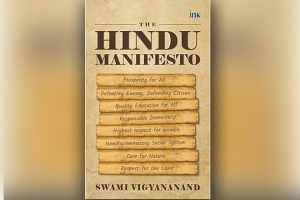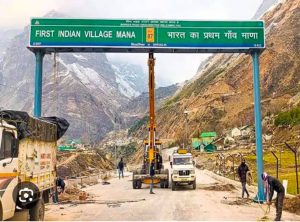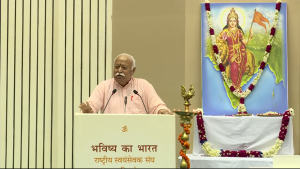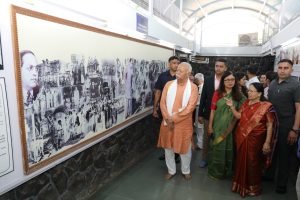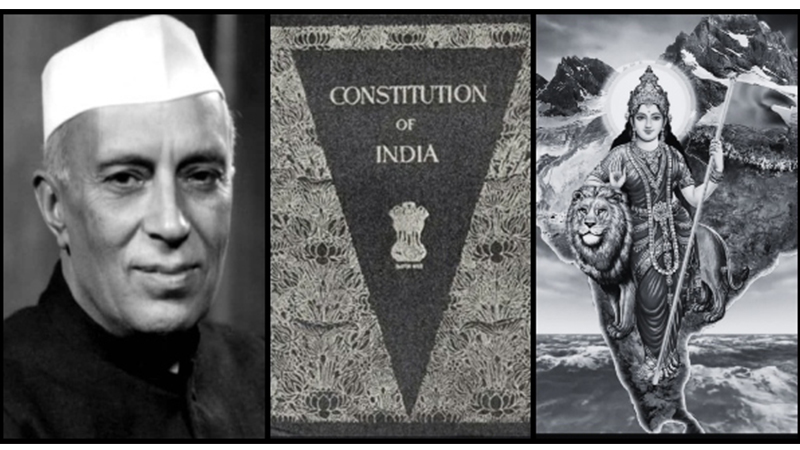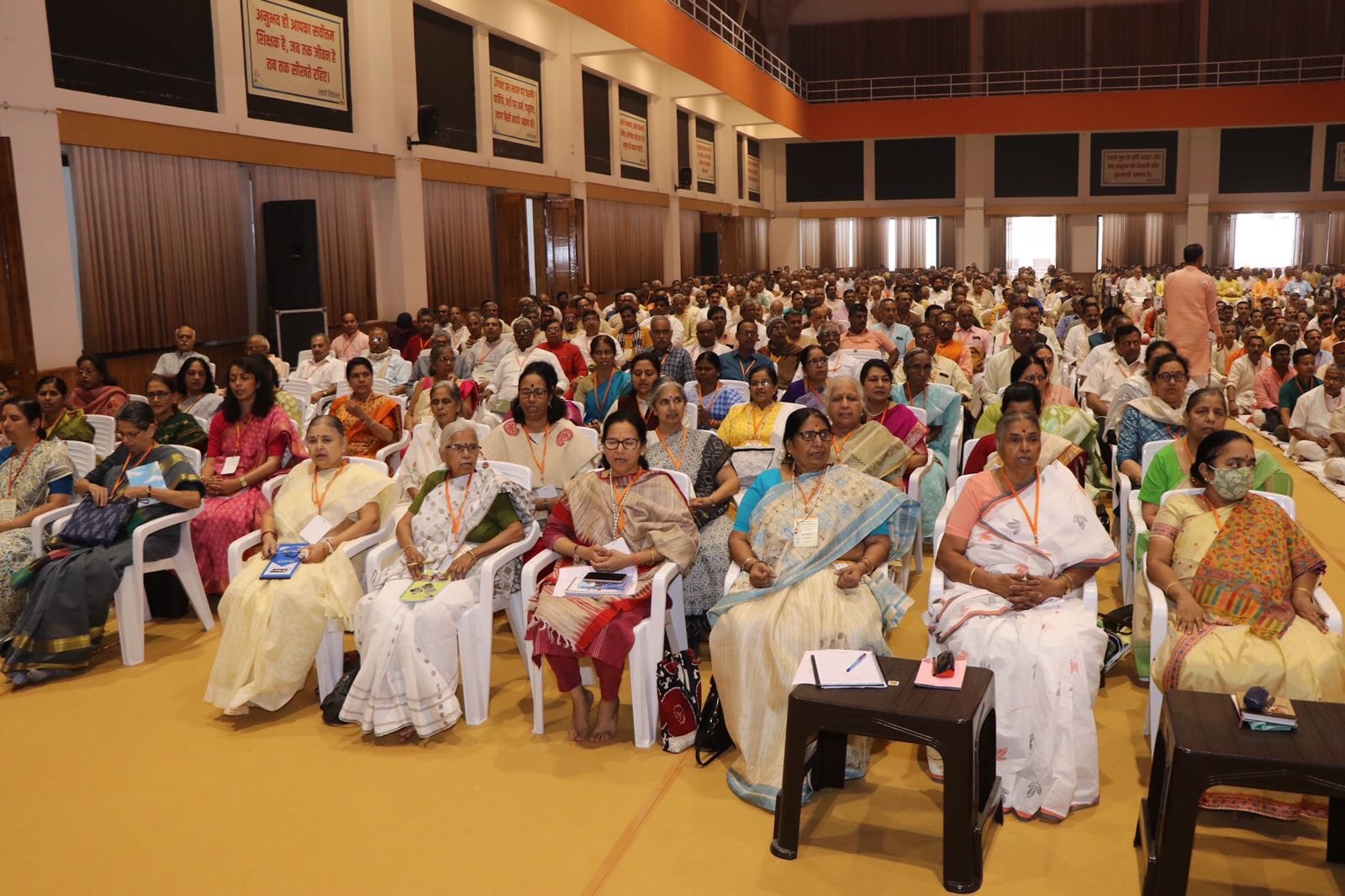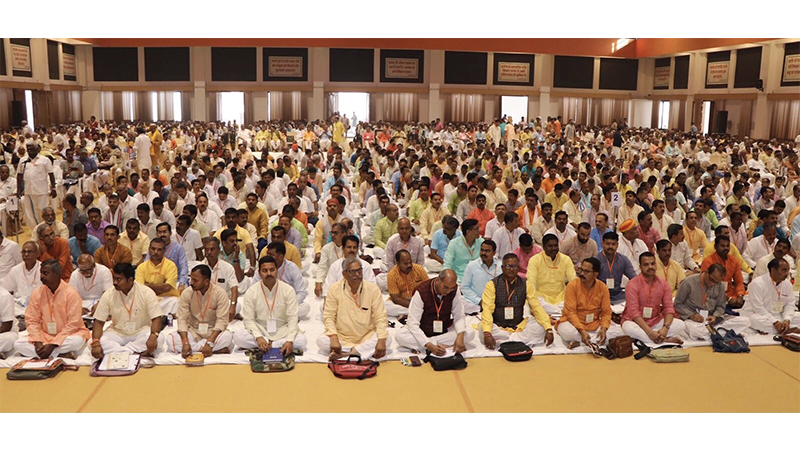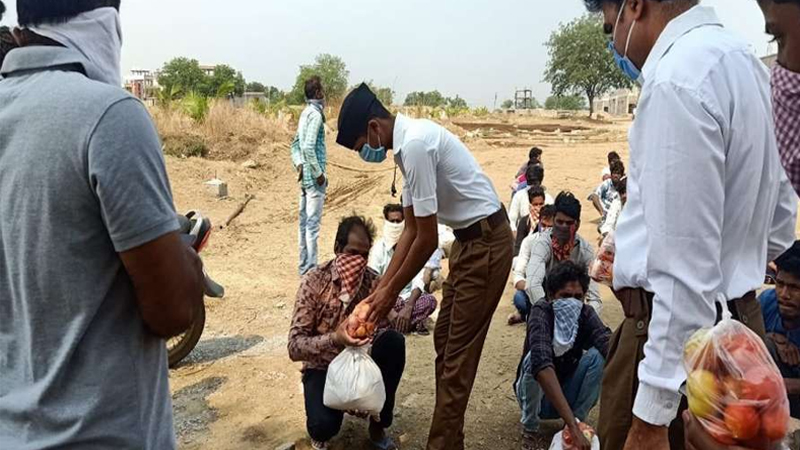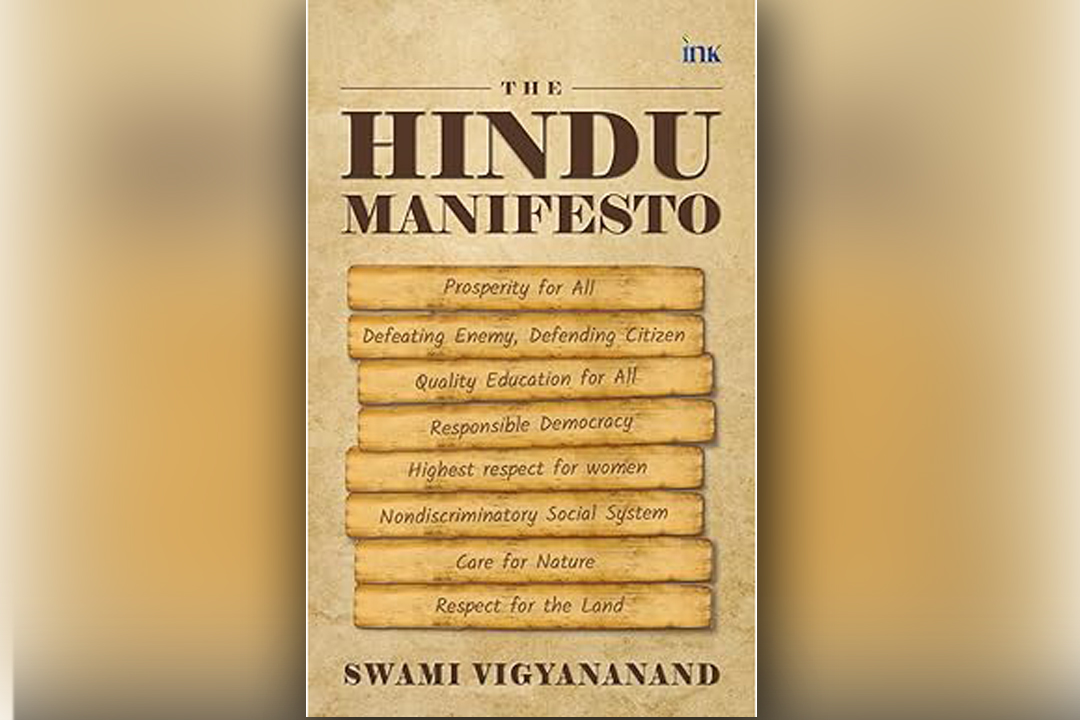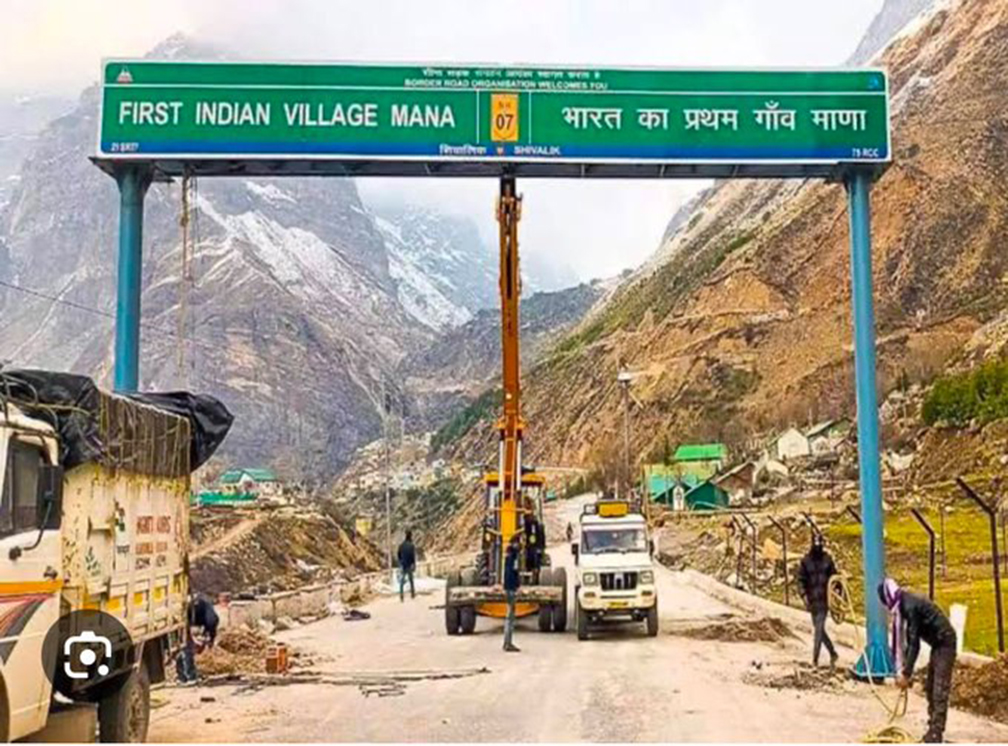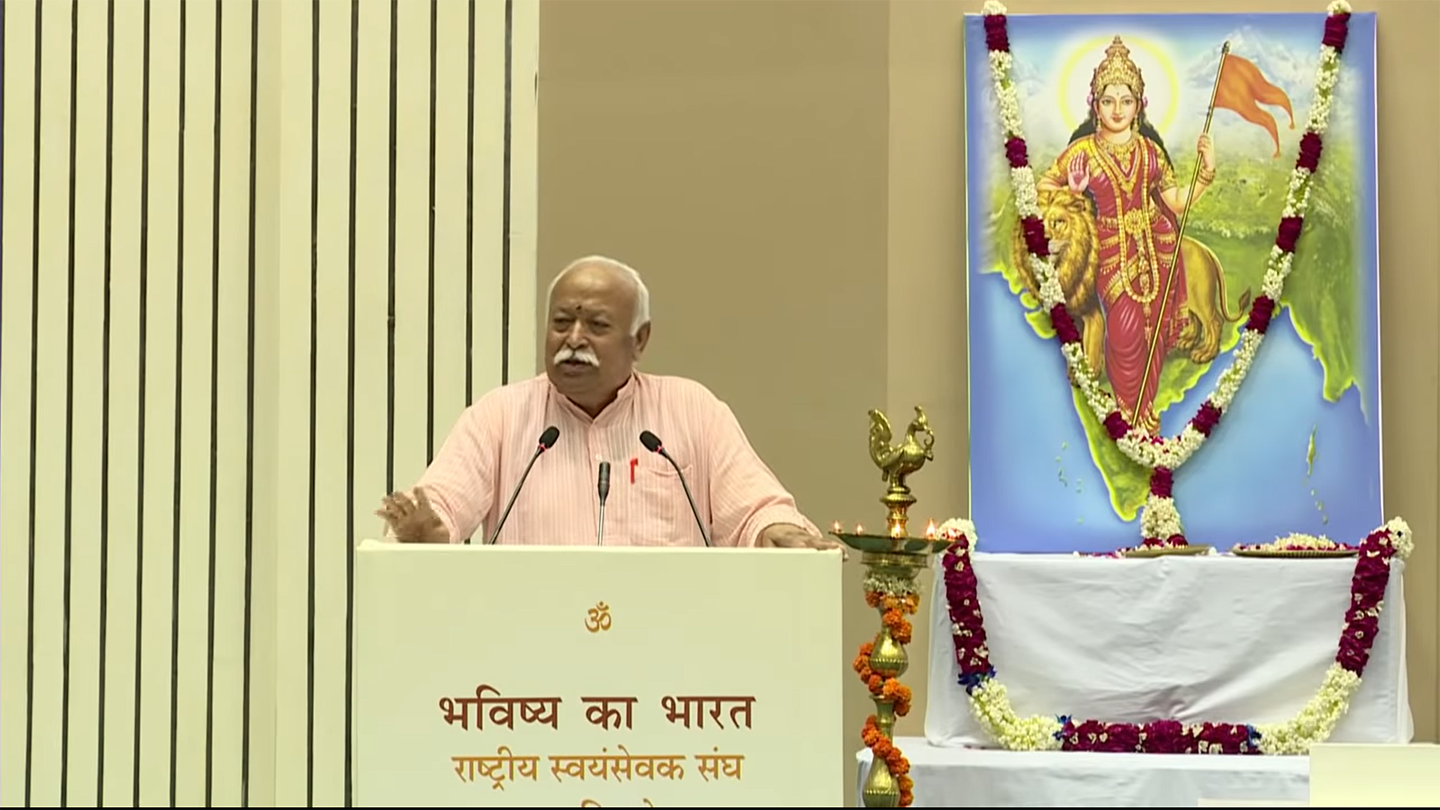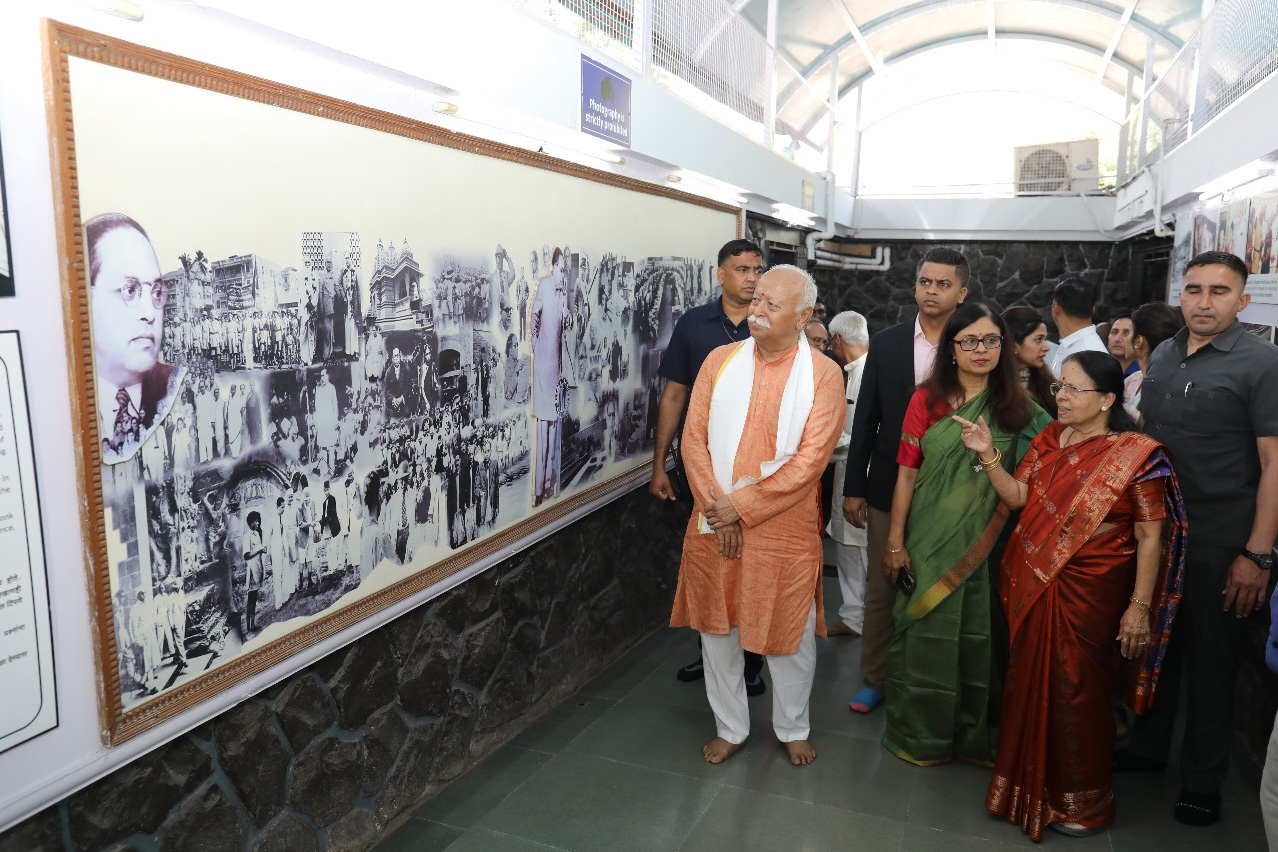How RSS General Secretary explained historical context of setting up of RSS
Updated: September 11, 2023 1:16
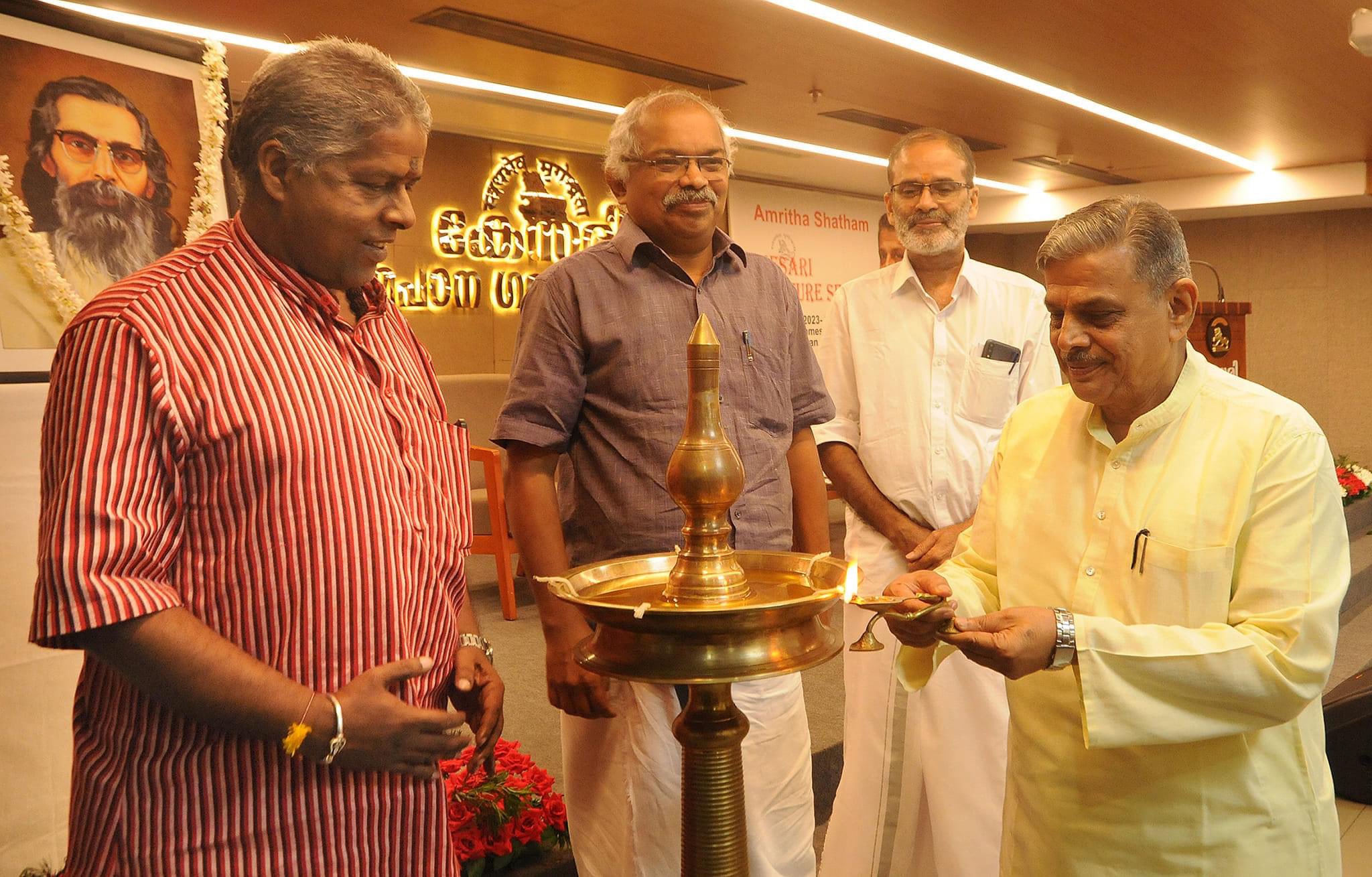
The Rashtriya Swayamsevak Sangh (RSS) will turn 100 in 2025. Several programmes are being organised across India to mark this occasion. As a part of the centenary celebrations, a lecture series was organised in the Indian state of Kerala. The inaugural lecture was delivered by the RSS Sarkaryavah(General Secretary) Dattatreya Hosabale at Kesari Bhavan, Kozhikode (Kerela) on August 17, 2023. Hosabale outlined the historical context for foundation of the RSS by explaining that it is important to understand the life and work of its founder Dr Keshav Baliram Hedgewar to understand the RSS. The full lecture can be accessed at https://www.youtube.com/watch?v=K92f4CTo39s.
Here we are sharing the key quotes from this lecture. These quotes can be accessed on the video link given above at the counters given in the parentheses in the beginning of every quote-
(9:48) Dr Hedgewar was a born patriot and he wasn’t ready to be called a patriot. If somebody introduced him..that he is a great patriot, he said it is demeaning to be introduced as a patriot. A person born in a country has to be a patriot. If you say that he is a patriot you mean that others are not patriots. He went one step further. Dr Hedgewar said that introducing a person as a patriot of the country is like introducing that he is a human being.
(11:20) He was a born patriot, activist, a keen student of social history of our country, master of human psychology, an ace organiser, a deeply committed nationalist who sacrificed everything at the altar of motherland. He did everything for the cause of nation. He studied not for his career. He studied medicine and became a doctor. There were umpteen chances and jobs were offered to him… In Nagpur, hardly there were 70 medical practitioners. So, Dr Hedgewar had a golden opportunity to become a well-established physician and earn enough money. He didn’t do it even for a day. Whatever he did in his life was for the glory of the nation, to pay back the debt for being born in this nation…
(14:00) Dr Hedgewar’s patriotic acts during school days as a boy have been highly inspiring… apart from being the early indicators of his future life.
(15:10) He was expelled from the school because of his patriotic acts. He organised Vande Matram agitation in the school… He didn’t eat the sweet which was given to him on the occasion of the golden jubilee of Queen Victoria’s coronation. So, these were the patriotic acts, the patriotic deeds that young Keshav demonstrated in his early days. And as a result of his Vande Mataram agitation (he led that agitation, he planned it, he executed it) he was expelled from school with his friends. So, he had to go out of school because he was expelled. He was not ready to tender an oral apology which was demanded by the school management, not even a written undertaking. Just an oral apology, but Dr Hedgewar was not ready. Friends, he was expelled. No remorse he said it was an opportunity for me to go to some other place and do the work there. And RSS people belong to this category.
(17:20) I can only laugh at the people who say he tendered apology during emergency. Dr Hedgewar was not ready even to give an oral apology and we belong to this legacy. He pursued his school education and later on he went to Kolkata to have his medical education. Dr Hedgewar was already active in Nagpur in public life. Whatever he could do at that school age he was already involved in those-either as an associate or as himself as a planner or as a person who led the activities in socio-political sphere for the attainment of freedom and to organise society. The important reason to go to Kolkata was to associate with the revolutionaries.
(19:10) Young Keshav had even before going to Kolkata his connection with the revolutionaries. The famous Alipore bomb case was there where Shri Aurobindo was involved and there were charges against him in Alipore Bomb Case conspiracy. And many people were arrested by the British. And Shri Aurobindo was also in jail. And there were some people who wanted to raise some funds in order to put up the legal defence in support of the revolutionaries. And one Madhav Das Sanyasi came from Bengal to Nagpur and stayed for some weeks in Nagpur and surrounding areas. We must remember those were the days of the British and these people were associated with revolutionary activities. That’s why underground living was a rule. Madhav Sanyasi cannot go freely around Nagpur town; his whereabouts should not be known. That’s why hideouts were planned. And during this entire period Keshav Hedgewar was with him in order to protect him from police and also to raise funds for the legal defence of Alipore Bomb Conspiracy people who were charged-revolutionaries. This is how he was already having some connection. Or was picked up for such activities by the leaders because he showed his capacity his mettle to actively participate in such movements.
(35:45) About his revolutionary activities, Trailokyanath Chakravarty who was his associate, his colleague in the revolutionary movement wanted to say certain things to the public in the centenary year of doctor ji. He promised to the Sangh karyakartas (volunteers) of Nagpur in 1989…that he will meet them next day in Nagpur and explain what Dr Hedgewar had contributed and how he participated in revolutionary activities when he was in Bengal and later on till his death. Trailokyanath Chakravarty unfortunately died the same night and whatever good could have been told by Trailokyanath Chakravarty who was fast friend and a colleague of Dr Hedgewar, we missed it forever. Dr Hedgewar didn’t want publicity. He was against fame and propaganda. He didn’t want it and destiny also played the same thing. However, many people who knew him during those days have recorded what he had done in that very trying and very difficult period of our national life.
(37:35-38:10) Advent of Tilak era in 1989 had two things-the terrible famine in the Bombay presidency area. Nagpur also was also to certain extent the victim of this famine. The Bengal famine was created by the British. It was an artificial famine. Whether Bombay presidency famine was such a famine was such or not till now, no body has written. The second thing was epidemic plague. Those of us who know the early life of Dr Hedgewar ji and his brothers were very much involved in providing succour to the patients of the plague. The epidemic was such that everyday hundreds of people were dying. And Dr Hedgewar was active in reaching out to people to help them, to save them or cremate their bodies.
(49:50) Jogesh Chandra Chatterjee who has written a book ‘In Search of Freedom’ has mentioned about Dr Hedgewar. During his stay in Kolkata which lasted five years he was a highly popular figures among nationalist leaders and citizens of Bengal.
(50:10) Hedgewar also functioned as a link between the revolutionaries of Bengal and then central provinces. A large quantity of pistols and small arms were dispatched from Bengal to the central provinces. Of which Nagpur is the headquarter. Whenever Dr Hedgewar visited Nagpur, he used to carry arms from Bengal whenever he used to visit when he was studying medicine in National Medical College. He used to visit Nagpur once in 4-5 months. He used to carry arms and distribute it. This finds mention in the book ‘In Search of Freedom’ by Jogesh Chandra Chatterji. Hedgewar was among many people across the country who tried to organise armed struggle against the British during 1899-1919.
(50:57- 51:50) Hedgewar was listed in a book (published by the police) ‘Political criminals of India’… Only those individuals are included in this list by the criminal intelligence office of the government of India during those days of British involved in revolutionary organisations and activities and who knew how to make bombs and other explosives… From central provinces Hedgewar’s name was included. This is for those people who say that the RSS and its founder was not involved in the freedom struggle. People write about it. We don’t need their certificate, but the fact is this.
(55:40) Dr Hedgewar participated in the Congress movement. He became joint secretary of the Vidarbha region of the Indian national Congress. Before that he was the joint convenor of the voluntary core… to organise conferences of the Congress. … when Nagpur Congress session was held, Dr Paranjape was the convenor of the swayam sevak dal. Volunteers (were) to organise the conference. And Dr Hedgewar was there with Dr Paranjape as the joint convenor. So he saw many leaders from close quarters. He was an exemplary organiser.. So the Nagpur session from the organisation point of view was very good.
(56:55) In that conference (Nagpur session) of the Congress as the members of the swayamsevak dal and also the reception committee, Dr Hedgewar proposed two resolutions for discussion and adoption in the session. One was to declare total independence and to work for that. And another was to liberate all the countries from the clutches of the capitalist European forces. But these resolutions were not accepted by the committee. And hence there was no question of discussion and passing the resolution. These resolutions themselves show what Dr Hedgewar was thinking.
(1:03) What Dr Hedgewar had felt that the society was dead. The struggle had become too cold. No activities in the Indian National Congress were going on. Moplah riots had taken place in Kerala. Thousands had been killed. Muslim riots and Muslims against Hindus, that was going on.
(1:05:15) People had serious doubts about Gandhiji’s efforts of getting freedom within a year. He had promised. So people had their own doubts about this method. And government’s repressive, deceptive, coercive activities were on high. And in such a situation Dr Hedgewar thought what is the way out. Before going to that, they were studying the freedom movement of different countries. One such was Ireland… They thought of running a parallel and alternative govt as part of war of independence. Such a thing can be taken up in our country also. That was the thought of Dr Hedgewar and others those days. They could not convince Gandhiji and the Congress leaders on this. So that was the situation. Doctor ji was sure.
(1:06:48) From 1914 to 1918 as we all know the First World War had taken place. And when the First World War was going on, the British were enlisting the young kids for the army from our country. And there was a competition among the nationalist leaders of Bharat, including Nagpur, Maharashtra, Delhi and many places to get into the British army in big numbers so that the British army had promised that after the war we will give you independence and that’s why strengthen the British army. So, this was the idea. But Dr Hedgewar said don’t believe these British. You can get into British army only to learn how to handle the arms and weapons, to know the intelligence things of inside. But helping the British in the war, believing that they’re going to give us freedom after the war is next to impossible. He didn’t believe. And he was thinking he said in another 20 to 30 years, there will be another war by the Europeans. This one world war has taken place. He told his few friends what is the basis of this prediction and assessment. The friends have written we don’t know whether it was his vision out of self-introspection or due to deep study of the Germans and other Europeans. He was keen on taking advantage of the situation at that time to attain the freedom. When the enemy is weak hit him. So, we should have a strong organised society within 20 years. Again, there will be such a situation. By then we should have organised society to take up the struggle to its ultimate level. Hindu society without hating any other society or community but only on the basis of its own capabilities and sacrifice should attain freedom of the country. These are the words of Dr Hedgewar as recited by his closest friend Appaji Joshi. And for this we should make society strong and capable. He shared this idea with his friends during 1922-24. Fourteen brainstorming sessions took place in Nagpur, Wardha, Akola and other places. Appaji Joshi has recorded this. Some of these meetings were attended by Appaji Joshi also.
(1:10:40) In thousands of years of history of our land it’s not the first time that the British have played such role. We have been fighting and fighting. This is because of certain very important reasons for the downfall of the nation. We have not been able to establish a united one nation on the strong basis of our cultural civilisation and heritage, without practising any discrimination on any basis. Unless and until we do that, we will not make this country a glorious, happy and a prosperous country. Today or tomorrow British will have to leave this country, will have to say good bye to this country. They can’t rule us forever. The society will rise, the situation will change, the geopolitical scenario will change. The British will have to fight another war. And they can’t continue forever. But after British leave the country what is going to happen. Many agitations and efforts are there. Today we see no results. But let us not lose hearts. Let us have confidence in our ancient society. He contemplated the history of the thousands of years of Bharat. There’s no organisation that binds this country without any barrier, without any fissiparous tendency. There is no strong sense of nationalism… But a sustained nationalist spirit throughout life, in every activity of one’s life, unless and until that thing is inculcated in every human being of this country. Even if we attain freedom, we will not be able to retain it forever. Even if we retain it will not make the country prosperous.
(1:13:42) This country is of Hindus. This land is the motherland of Hindus. They have evolved a culture. This culture has made it a nation. This nation has developed a civilisation. This civilisation has made contributions to the world. And that world is considered one family by the Hindus. So, we start from the nation but we embrace the whole humanity. That is the basic philosophy of Hindus. The Hindustan doesn’t live for itself. As Maharshi Aurobindo said India will rise, she will not rise for herself, she won’t rise to trample others under the feet. She won’t rise to make others slaves. India will rise as a lighthouse to give guidance, to show the path for the entire humanity and it has to be done. This society has to be organised. Hindustan is of Hindus. Patriotic and nationalist feelings and acts have to be every day, natural phenomenon of a country. Culture is the basis of us. As Swami Vivekananda said service and renunciation these will have to be the bedrock of a society if it wants to achieve great things. For this, this Hindu nationalist feeling will have to be imbibed into every human being of this country. And for that who will do the job. He had told once to Trailokyanath Chakravarty that somebody has to do this. But I think if nobody is there, then I will have to take this as my life mission. This is what Trailokyanath Chakravarty has recorded. And Dr Kehshav Hedgewar with this background of study of thousands of years of this nation, his first-hand experience in public activity, his total involvement in freedom struggle, his wide contact with people from different walks of life, his understanding on the basis of spirituality and cultural heritage of this nation, his love (and) his sensitivity for everything that is of this nation and his vision for the future he founded the Rashtriya Swayamsevak Sangh on the auspicious day of Vijayadashmi in 1925. This is the historic background of the RSS.
(Ends)
